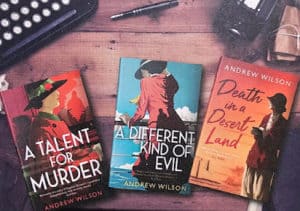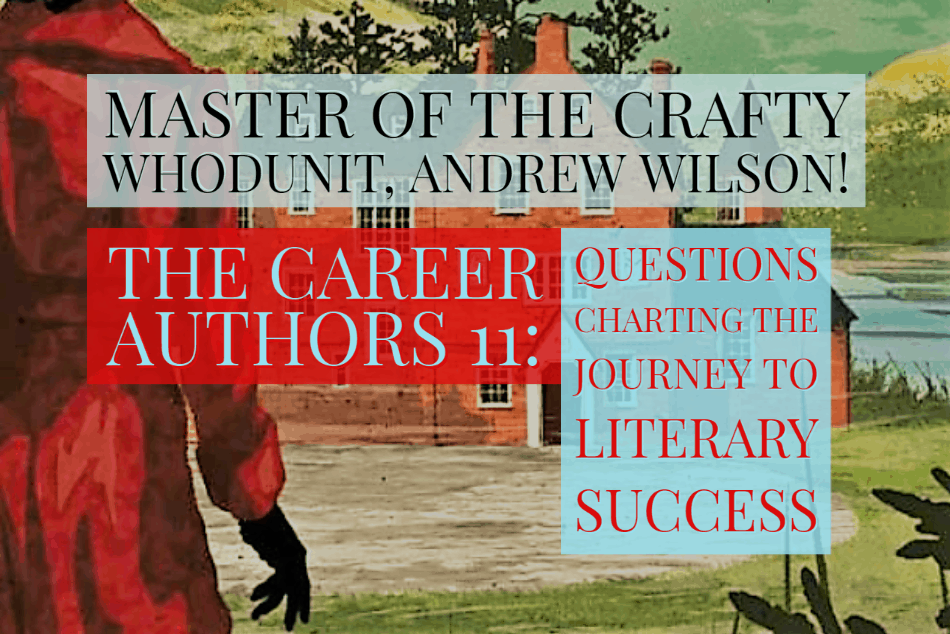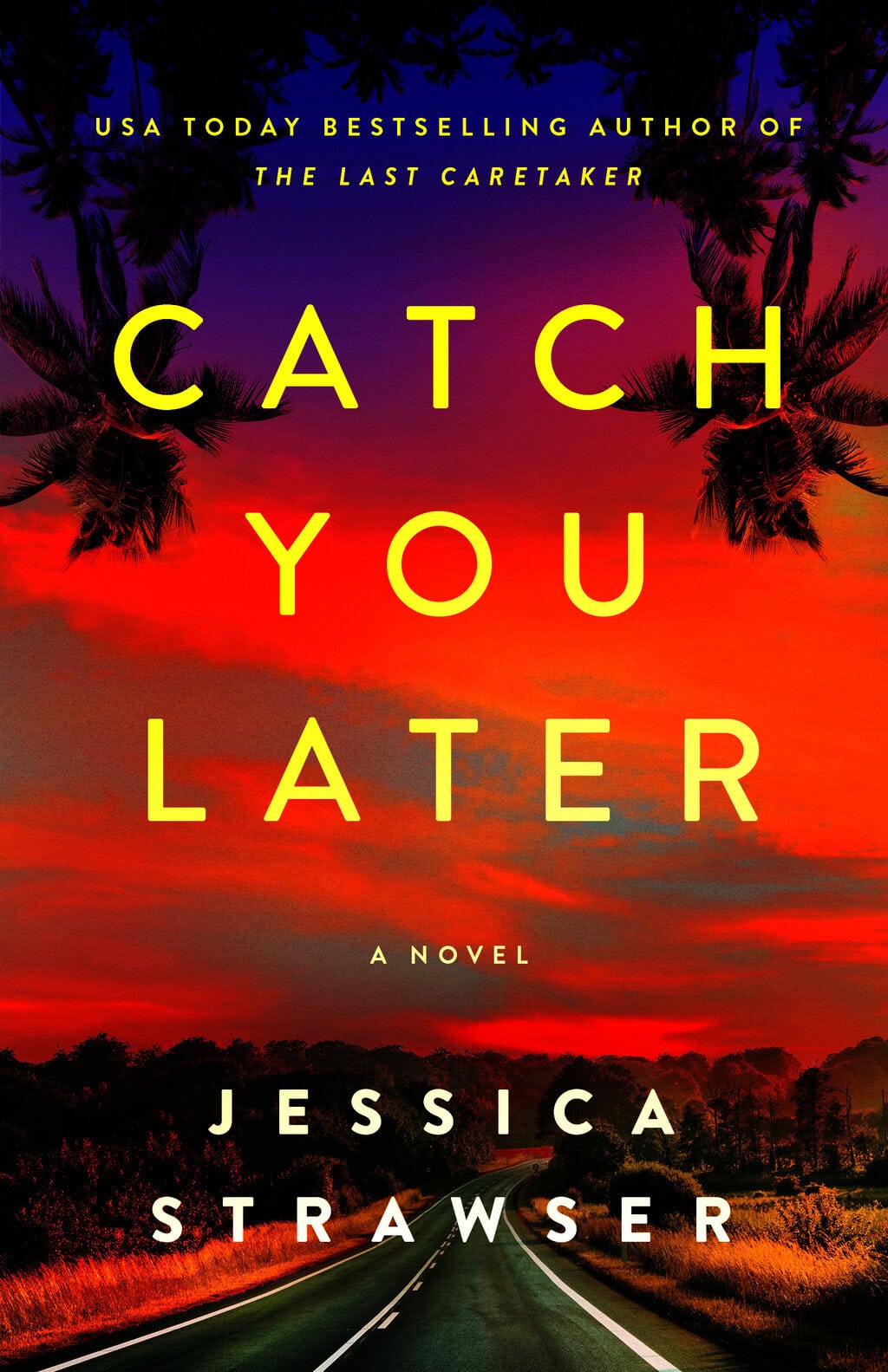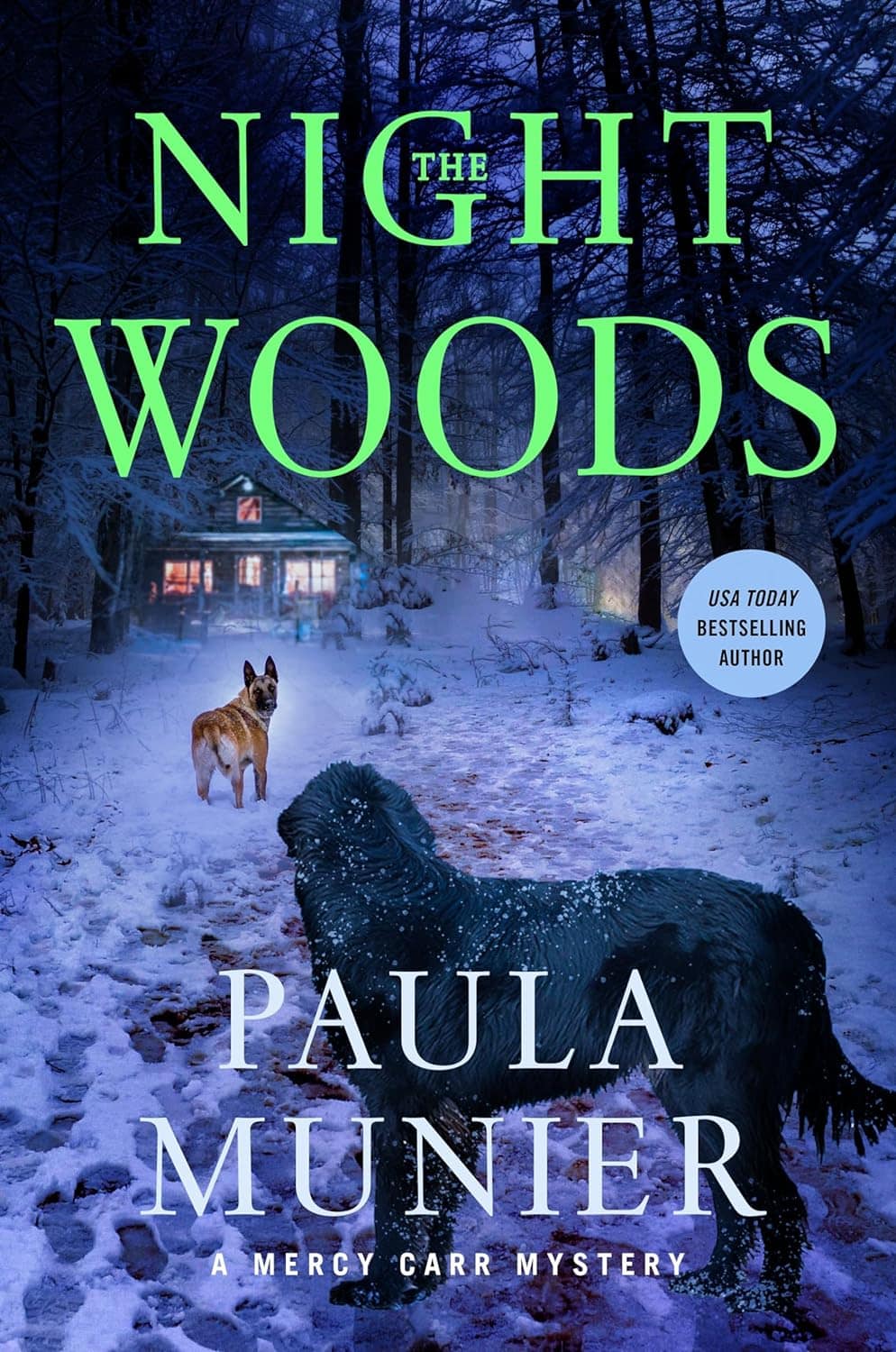Andrew Wilson has been both journalist and biographer. Among the many fascinating books authored by him is a riveting biography of Patricia Highsmith. But he also writes fiction: recently, a critically acclaimed mystery series, with Agatha Christie as his sleuth. The latest in that fiendishly plotted series is just out, and it’s incredible. (You should read it.)
Obviously, here is a man who has made a serious study of the writing craft—which is why we were so eager to hear his answers to the Career Authors 11 …
1. What book changed your life?
It has to be Agatha Christie’s The Murder of Roger Ackroyd, published in 1926. It blew me away and made me want to become a crime writer. It’s regularly named as one of the best—if not the best—crime novel of the 20th century and it’s not hard to see why.
2. Was your first published book the first manuscript you ever wrote?
I’ve always wanted to be a writer and I scribbled away ever since I was a child. So there were lots of incomplete manuscripts of stories and fragments of ideas. After university, I worked as a feature writer for many of the U.K. national newspapers and magazines before writing my first book, Beautiful Shadow: A Life of Patricia Highsmith, which was published by Bloomsbury in 2003. My first novel, The Lying Tongue, was published in 2007. Since then I’ve done a mix of nonfiction—biographies of Sylvia Plath, Alexander McQueen and a group biography of the survivors of the Titanic—and fiction. My latest novels are a series featuring Agatha Christie as sleuth.
3. Stephen King says, “The hardest part is just before you start.” What’s the hardest part of writing for you?
It depends on the type of writing I’m doing. With nonfiction the hardest but most rewarding part is the research. I love hunting for scraps of paper in old archives and traveling the world interviewing people. With fiction, the hardest part is plotting, making sure the narrative fits together. But again this is incredibly satisfying.
4. Do you know the story’s ending before you start?
Usually, yes. I like to know the backstory and the ending before I start the actual writing. For me, it’s important to keep life in the story and have a certain element of unpredictability, a quality that even surprises me.
5. When you’re having a difficult writing day, what do you tell yourself to get through it?
I just go for a walk and try not to think about it. Usually, the issue—whether it’s a tricky plot point or a block in the narrative—will resolve itself. If this doesn’t work I tend to sleep on it—and often, just as I’m waking up, I will have seen a way of solving the problem.
6. Do you read your reviews?
Yes, I do. Sometimes it’s joyous—yes, a reader totally gets me!—and at other times it’s dispiriting.
7. Besides being persistent and correcting your spelling errors, what’s your best advice for a new author?
Make sure you know what kind of book you want to write. Ask yourself: what market is this for? What genre? Obviously you can play with the expectations of genre, but it’s important to know who your reader is. For me, I write the books I like to read.
8. What’s your definition of writer misery?
Getting lost or bogged down in plot problems. I like to know (roughly) where a book is going, and I’d be miserable if I was just writing to fulfil my daily word count without knowing the direction of the story. That’s why, for me at least, it’s a good idea to do a certain amount of planning.
9. What’s your definition of writer happiness? Speaking of which–what’s your newest book, and how do you feel about it?
When the words just flow as if they are being dictated to you by some invisible force. When this happens it’s so joyous and mysterious too. My new book, I Saw Him Die, is the fourth in my series of novels featuring Agatha Christie as detective. Agatha is on the Isle of Skye, in Scotland—a place she really did visit in 1930, when the novel is set. She is recruited by her friend, Secret Intelligence Service agent John Davison, to help prevent the death of Robin Kinmuir, a former agent turned hotelier. When Kinmuir is found dead in the arms of his nephew it appears to be a simple hunting accident but, as Agatha digs deeper, she discovers that each and every one of her fellow guests has a reason to want the late proprietor dead.
10. What’s your favorite book on writing?
I love Stephen King’s On Writing. It really helped me in my own writing, particularly his advice, ‘Tell the story.”
11. What book are you reading right now?
I’ve just finished two books I loved: My Dark Vanessa by Kate Elizabeth Russell and He Said/She Said by Erin Kelly. I always have an Agatha Christie on the go, and I’m dipping back into her 1953 novel After the Funeral.
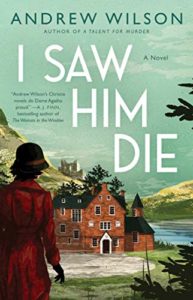
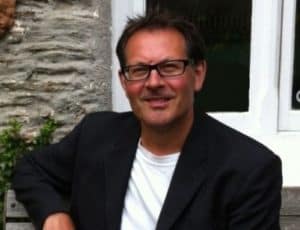 Andrew Wilson is an award-winning author and journalist. His first book Beautiful Shadow: A Life of Patricia Highsmith was shortlisted for the Whitbread biography prize (2003) and won an Edgar Allan Poe award for biography in 2004 and a LAMBDA Literary Award in 2003. His journalism has appeared in a wide range of newspapers and magazines including the Sunday Times, the Observer, the Daily Mail, the Evening Standard, the Independent, Tatler, the Smithsonian and the Washington Post. Andrew is the new tutor on Faber Academy’s online crime writing course, and he is also a mentor on the Gold Dust creative writing scheme.
Andrew Wilson is an award-winning author and journalist. His first book Beautiful Shadow: A Life of Patricia Highsmith was shortlisted for the Whitbread biography prize (2003) and won an Edgar Allan Poe award for biography in 2004 and a LAMBDA Literary Award in 2003. His journalism has appeared in a wide range of newspapers and magazines including the Sunday Times, the Observer, the Daily Mail, the Evening Standard, the Independent, Tatler, the Smithsonian and the Washington Post. Andrew is the new tutor on Faber Academy’s online crime writing course, and he is also a mentor on the Gold Dust creative writing scheme.
